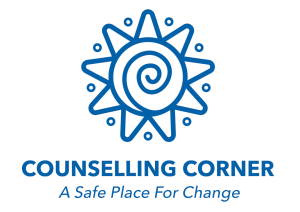Welcome to the Executive Council of the International Association for Counselling. Your service to the organization is essential to the continuation of the vision to make counselling available to people worldwide. This handbook, while not exhaustive, provides a general orientation to your role as a member of the Executive Council. It also serves as the agreement for council member conduct, ethics, and conflict resolution.
IAC Executive Council Roles – Key Duties
Click here for Executive Council positions and key duties.
Expectations for Engagement of Executive Council Members
1. Attendance and Participation
-
Be an active member of IAC in good standing.
-
Attend all scheduled online council meetings, including special and emergency sessions, unless excused in advance.
-
Arrive on time and stay for the full duration of each meeting.
-
Review meeting materials in advance and come prepared to contribute thoughtfully.
-
Participate actively and respectfully in discussions and decision-making.
2. Committee Involvement
-
Serve on at least one standing or ad hoc committee, providing support and leadership as needed.
-
Engage in committee work between meetings, including reviewing materials, attending sub-committee meetings, and completing assigned tasks.
3. Strategic Engagement
-
Contribute to the development and evaluation of the organization's strategic plan.
-
Support initiatives that advance the organization’s mission, values, and long-term goals.
-
Remain informed about key trends, opportunities, and challenges relevant to the organization’s work.
4. Advocacy and Representation
-
Act as an ambassador for the organization in the community and among stakeholders.
-
Promote and support organizational events, programs, and initiatives.
-
Represent the organization professionally and in alignment with its values.
5. Financial Responsibility
-
Contribute to the organization’s financial stability, which may include promoting events, fundraising, or leveraging connections for support.
-
Understand and review the organization's financial reports and budgets.
6. Communication and Responsiveness
-
Respond promptly to organizational communications, including emails, calls, and requests for input.
-
Communicate availability and any limitations that may affect participation.
7. Development and Learning
-
Participate in governance and leadership training sessions as offered or required.
-
Stay informed about current governance best practices and evolving responsibilities.
8. Evaluation and Self-Reflection
-
Participate in periodic self- and peer-assessments of council performance.
-
Be open to feedback and committed to continuous improvement in leadership and governance.
Code of Conduct for Executive Council Members
The purpose of this Code of Conduct is to establish a standard of ethical and professional behaviour expected of all Executive Council members in the execution of their duties.
Commitment to the Organization
-
Act in the best interest of the organization at all times.
-
Support the organization's mission, vision, and strategic goals.
-
Avoid any conduct that would reflect unfavorably on the organization.
Integrity and Ethics
-
Maintain honesty, transparency, and integrity in all council-related matters.
-
Avoid conflicts of interest, and disclose any potential or actual conflicts immediately (see Conflict of Interest Policy).
-
Abstain from voting on issues where a personal conflict exists.
Confidentiality
-
Respect the confidentiality of sensitive information and discussions.
-
Do not disclose or use confidential information for personal or third-party gain.
Accountability
-
Accept responsibility for decisions and actions taken as part of the council.
-
Ensure proper oversight of organizational assets, operations, and personnel.
-
Attend online meetings regularly and be prepared for discussions and decision-making.
Respect and Collegiality
-
Treat all members, staff, and stakeholders with respect and dignity.
-
Encourage open, respectful dialogue and diverse viewpoints.
-
Refrain from any form of discrimination, harassment, or intimidation.
Compliance with Laws and Policies
-
Abide by all applicable laws, regulations, and organizational byelaws.
-
Follow internal policies, including financial procedures and governance rules.
Use of Resources
-
Use organizational resources responsibly and only for official purposes.
-
Avoid misuse of position, authority, or property.
Professional Development
-
Stay informed about the organization’s work and governance best practices.
-
Participate in training or development programs when available.
Enforcement and Consequences
-
Violations of this Code may result in disciplinary actions, including removal from the Executive Council.
-
Concerns about potential breaches should be reported to the President or Ethics Committee.
Executive Council Conflict of Interest Policy
The purpose of this policy is to protect the integrity and credibility of the Executive Council and to ensure decisions are made in the best interest of the organization by avoiding potential or actual conflicts of interest.
Definition of Conflict of Interest
A conflict of interest arises when a council member’s personal, financial, or professional interests could interfere with their duty to act in the best interests of the organization. This includes situations where a council member:
- Stands to personally gain from a decision or transaction involving the organization.
- Has a financial interest in, or serves as a director, officer, or employee of, an entity conducting business or partnering with the organization or of another counselling organization.
- Uses organizational information, influence, or resources for personal benefit or that of a family member or associate.
Duty to Disclose
Executive Council members must:
-
Disclose any actual or potential conflicts of interest at the earliest opportunity.
-
Complete and update an annual Conflict of Interest Disclosure Form.
-
Recuse themselves from discussion and voting on matters in which they have a conflict.
Procedures for Addressing Conflicts
-
When a conflict is disclosed, the President (or designated officer) shall determine if a conflict exists and how to proceed.
-
The council member with the conflict may be asked to leave the meeting during deliberations and will not vote on the matter.
-
The decision and rationale must be documented in the meeting minutes.
Confidentiality
Council members shall not use or disclose any confidential information, nor any information obtained through their position, for personal or third-party benefit.
Gifts and Benefits
Council members shall not accept gifts, favours, or hospitality that might influence—or appear to influence—their decisions or actions.
Violations of the Policy
Violations may result in:
-
A formal warning
-
Suspension from certain responsibilities
-
Removal from the Executive Council, subject to byelaws and governance procedures.
Annual Acknowledgment
All Executive Council members must annually sign:
-
A statement affirming they have received, read, and understood this policy
-
A disclosure form listing any potential conflicts.
Click here for the Conflict of Interest Declaration form.
Executive Council Grievance Policy
Purpose
Our expectation for EC members to abide by the aforementioned Code of Conduct will reduce opportunities for conflict and grievance. However, this policy provides a structured and fair process for Executive Council members to raise and resolve grievances concerning council-related conduct, decisions, or interpersonal conflicts. This policy applies to all members of the Executive Council and covers grievances related to:
-
Interpersonal disputes or misconduct among council members
-
Perceived unfair treatment, exclusion, or harassment
-
Procedural or ethical concerns regarding council operations or decisions.
The grievance process will be:
-
Respectful – All parties will be treated with dignity and fairness.
-
Confidential – Matters will be handled discreetly to protect privacy.
-
Timely – Grievances will be addressed promptly.
-
Impartial – Investigations will be unbiased and guided by facts.
Grievance Procedures
Informal Resolution (Recommended First Step)
-
Members are encouraged to first address concerns directly with the individual(s) involved, if appropriate and safe.
-
If direct communication does not resolve the issue, or is not feasible, the member may proceed to a formal grievance.
Formal Grievance Procedure
A formal grievance must be submitted in writing and include:
-
A clear description of the concern
-
Relevant dates, individuals involved, and any supporting evidence
-
Desired outcome or resolution.
The written grievance should be submitted to:
-
The President of IAC, or
-
If the President is involved, to the Vice President of Operations.
- Each grievance submitted will then be turned over to the Ethics Committee.
Investigation and Resolution
-
Upon receiving the grievance, the President or Vice-President of Operations will acknowledge receipt within 5 business days.
-
A review or investigation will be initiated, involving interviews or document review as needed.
-
The investigation should be completed within 15–30 days, depending on complexity.
-
A written summary of findings and decision will be provided to the complainant and respondent.
Outcomes
Possible resolutions may include:
-
Mediation between parties
-
Recommendations for changes in behaviour or process
-
Formal warning or censure
-
Removal from a position, committee, or from the Executive Council (in accordance with byelaws)
Appeals
If the complainant is dissatisfied with the outcome, they may submit a written appeal within 10 days of the decision. Appeals will be reviewed by an independent subcommittee or designated authority, whose decision will be final.
Retaliation
Retaliation against any individual for raising a grievance or participating in the process is strictly prohibited and will be treated as a separate disciplinary issue.
Executive Council Resignation Policy
This policy outlines the procedure for the voluntary resignation of Executive Council members to ensure proper documentation, continuity of governance, and respectful transitions. The policy applies to all individuals serving on the Executive Council, including elected, appointed, or ex-officio members.
Notice of Resignation
-
A member intending to resign must submit a written notice to the President (or to the Vice-President if the President is resigning).
-
The resignation notice should include:
-
Full name of the resigning member
-
Date of submission
-
Effective date of resignation
-
Optional reason for resignation (not required).
Notice Period
-
A minimum 30-day notice period is recommended to allow for transition planning and potential appointment of a successor.
-
The council may waive or shorten the notice period depending on circumstances and urgency.
Acknowledgment and Acceptance
-
The President will acknowledge the resignation in writing within 5 business days.
-
The resignation becomes effective on the date stated in the notice, or upon council acceptance if no date is specified.
Transition of Duties
The resigning member should:
-
Transfer any organizational materials, files, or assets in their possession
-
Provide relevant information or status updates on current responsibilities
-
Participate in a brief exit discussion if requested, to share feedback or suggestions
Replacement and Succession
-
The Executive Council will refer to the bye-laws or governance guidelines to determine how to fill the vacant seat (e.g., election, appointment, or temporary assignment).
-
Interim support may be assigned until a replacement is formally instated.
Final Records
-
A copy of the resignation letter will be retained with the council’s official records.
-
The member’s profile, access permissions, and responsibilities will be updated accordingly.
Policy on Removal of Executive Council Members
Section 1: Grounds for Removal
An Executive Council Member may be removed from their position for any of the following reasons:
- Ethics Violations: A breach of the organization’s Code of Conduct, conflict of interest policy, or any behaviour deemed unethical or damaging to the integrity and reputation of the organization.
- Inactivity: Failure to participate in meetings, communications, or official duties for a continuous period of six (6) months without reasonable explanation or approved leave of absence.
- Council Vote: A formal motion of no confidence passed by a two-thirds (2/3) majority vote of the full Executive Council.
Section 2: Procedure for Removal
- Initiation: A concern or motion for removal may be submitted in writing by any member of the Executive Council or designated oversight body.
- Notice: The member in question must be notified in writing of the proposed removal, including the specific grounds, at least 14 days in advance of any formal action.
- Right to Respond: The member shall have the opportunity to present a defense in person or in writing before any vote is taken.
- Decision:
- For ethics violations, the ethics committee may conduct an investigation and recommend removal.
- For inactivity, records of participation will be reviewed and verified.
- For council vote, the vote must be recorded, and a two-thirds (2/3) majority of the full council is required.
Section 3: Consequences of Removal
- The removed member shall immediately forfeit all titles, responsibilities, and access to organizational resources.
- A vacancy shall be declared and filled according to the organization’s succession or election procedures.
- Actions taken by the Executive Council are considered final and not subject to appeal.




